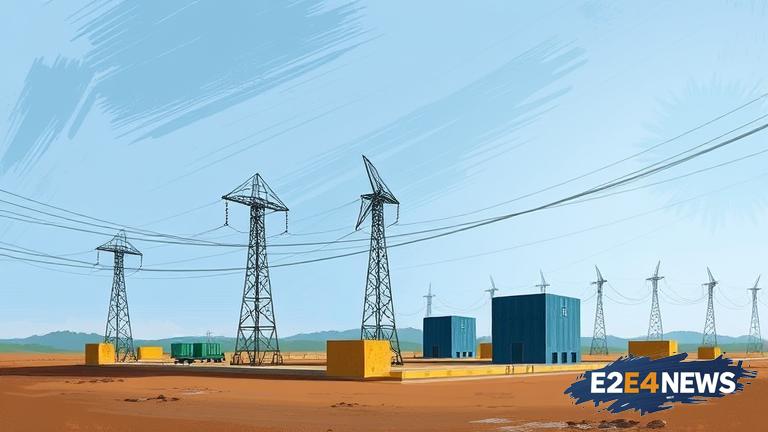The Nigerian energy sector has been plagued by numerous challenges, including inadequate power supply, high energy costs, and inefficient distribution networks. In a bid to address these issues, an expert has called on the Nigerian Electricity Regulatory Commission (NERC) to implement a multiple tariffs model for states. This model would allow for different tariff structures to be applied in different states, taking into account the unique energy needs and consumption patterns of each region. The expert argued that a one-size-fits-all approach to tariffs has not been effective in addressing the country’s power challenges. By adopting a multiple tariffs model, NERC can create a more flexible and responsive pricing system that reflects the diverse energy needs of different states. This approach would also enable the commission to better manage the country’s energy resources and ensure that power is distributed more efficiently. Furthermore, the expert noted that a multiple tariffs model would provide an opportunity for states to develop their own energy plans and strategies, tailored to their specific needs and circumstances. This would enable states to take ownership of their energy development and make more informed decisions about their energy futures. The expert also emphasized the need for NERC to engage with stakeholders, including state governments, energy distributors, and consumers, to ensure that the multiple tariffs model is designed and implemented in a way that is fair, transparent, and effective. In addition, the expert called for the commission to invest in data collection and analysis to better understand the energy needs and consumption patterns of different states. This would enable NERC to make more informed decisions about tariffs and energy distribution, and to develop more effective strategies for addressing the country’s power challenges. The expert’s call for a multiple tariffs model has been welcomed by many stakeholders in the energy sector, who see it as a potential solution to the country’s power problems. However, others have expressed concerns about the potential impact of such a model on energy prices and the overall efficiency of the energy sector. Despite these concerns, the expert remains optimistic that a multiple tariffs model can play a key role in transforming Nigeria’s energy sector and ensuring that power is distributed more efficiently and effectively. The expert’s proposal has also sparked a wider debate about the need for energy sector reform in Nigeria, with many calling for more fundamental changes to the way the sector is structured and regulated. As the debate continues, it is clear that the adoption of a multiple tariffs model would require significant changes to the way NERC operates and makes decisions about energy distribution and tariffs. Nevertheless, the expert remains convinced that such a model can help to address the country’s power challenges and create a more sustainable and efficient energy sector. In conclusion, the expert’s call for a multiple tariffs model for states is a timely and important contribution to the debate about Nigeria’s energy sector. By adopting such a model, NERC can create a more flexible and responsive pricing system that reflects the diverse energy needs of different states, and help to address the country’s power challenges. The expert’s proposal has the potential to transform Nigeria’s energy sector and ensure that power is distributed more efficiently and effectively, and it is an idea that deserves serious consideration by policymakers and stakeholders in the energy sector.
